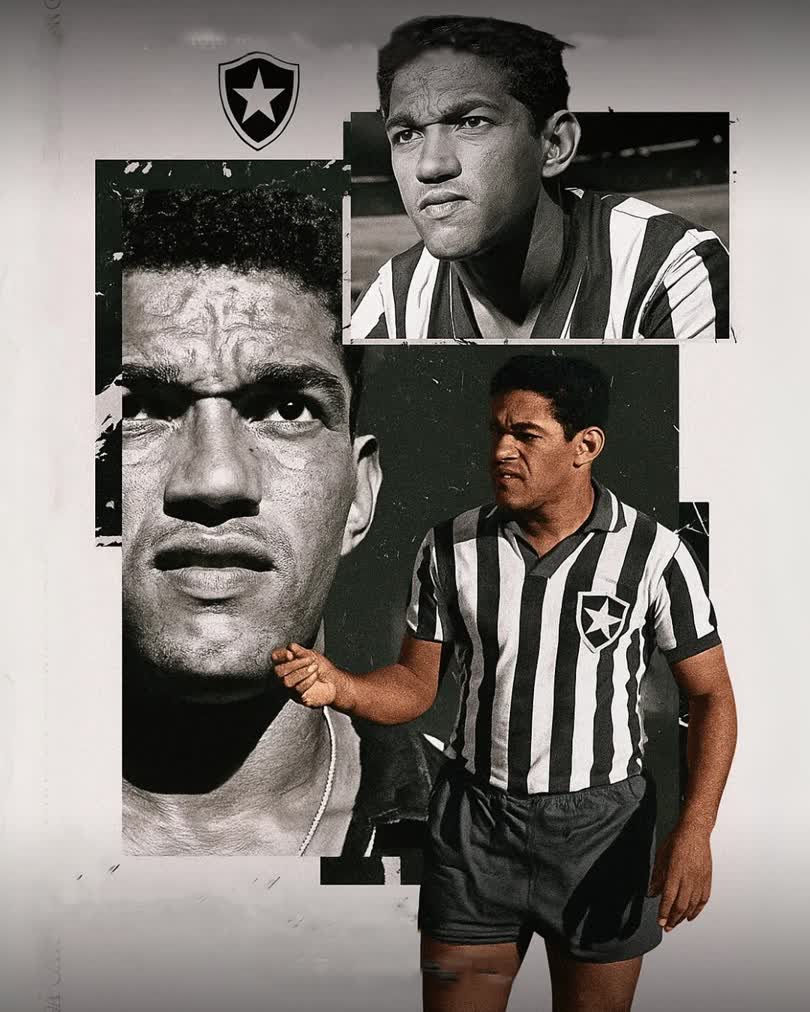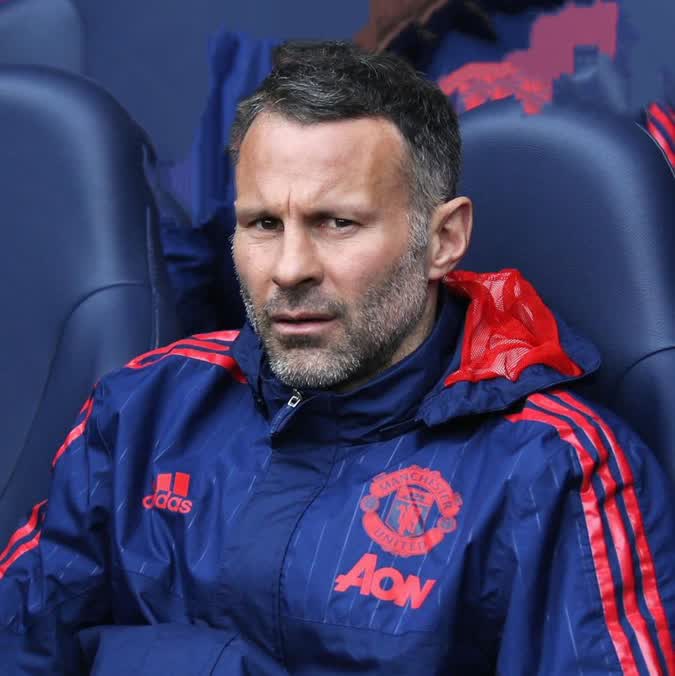Garrincha (real name: Manuel Francisco dos Santos, 1933–1983) is widely regarded as one of the greatest dribblers in football history and a true icon of Brazilian football.
Known for his dazzling skills, creative flair, and infectious personality, Garrincha was an integral part of Brazil’s dominance in the 1950s and 1960s, winning two FIFA World Cup titles in 1958 and 1962.
FootballOrbit takes a closer look at his life and legacy:
Early Life and Struggles
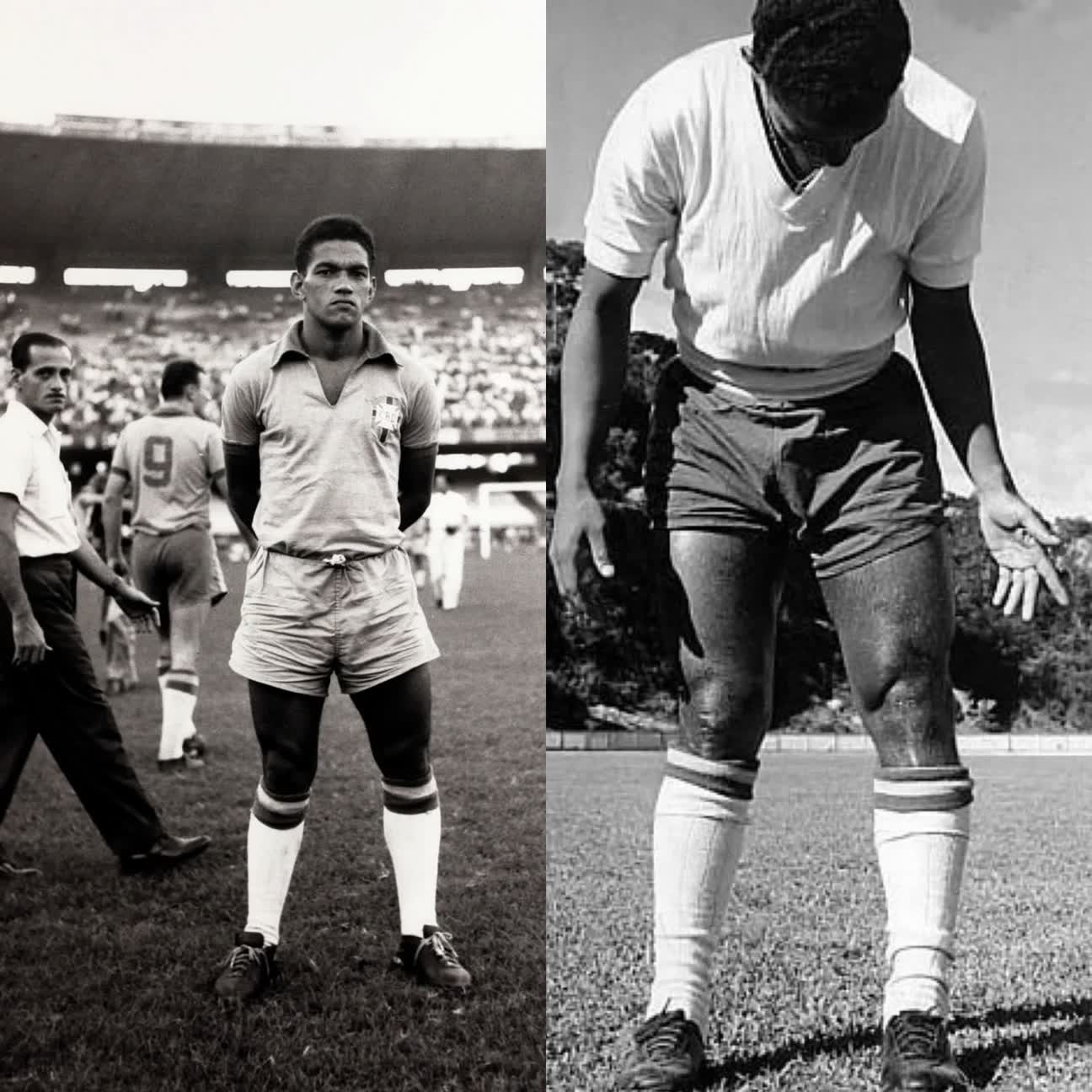
Garrincha was born in Magé, a small town near Rio de Janeiro, into a poor family. His father was a chronic alcoholic, a problem which Garrincha would inherit.
A boy with a carefree attitude, he was smaller than other kids his age, which made his sister give him the nickname “Garrincha”, (little bird).
From a young age, he displayed extraordinary talent with a ball at his feet.
However, his path to stardom wasn’t easy. Physical challenges played a role in his unique playing style.
He was born with severe physical deformities — his right leg was shorter than his left, and his right knee was abnormally bent. This gave him an unusual gait, but also allowed him to dribble in ways no one had seen before.
His physicality, paired with his incredible control, helped him become a dribbling maestro who could glide past defenders with ease.
Early Football Career
Garrincha began playing for local teams, and by the early 1950s, he was spotted by Botafogo, one of Brazil’s top clubs.
He quickly made a name for himself with his performances for the club, which led to his inclusion in the Brazilian national team.
Club Career
Garrincha spent most of his career at Botafogo, where he became a legend. He played for the club from 1953 to 1965, making 238 appearances and scoring 84 goals — becoming one of its greatest-ever players.
- Botafogo Success: At Botafogo, Garrincha won several Carioca championships and established himself as a key figure.
Moreso, his dribbling and flair made him a favorite with the fans, and he formed a famous attacking partnership with Nilton Santos, Jairzinho, and other top players.
- Stints at other clubs: Though his time at Botafogo was his most significant, Garrincha also briefly played for other clubs, including Flamengo, Corinthians Atletico Junior, Sacrofano and Olaria towards the end of his career.
However, it was at Botafogo that he achieved his greatest club success.
International Glory: The 1958 and 1962 World Cups
Garrincha’s legacy is most closely tied to Brazil’s success in the FIFA World Cup, and he was instrumental in their consecutive triumphs in 1958 and 1962.
1958 World Cup (Sweden): Although Pelé was the standout star of the tournament, Garrincha’s performances were key to Brazil’s success. He contributed with crucial goals and assists, particularly in the knockout stages, where Brazil defeated Wales, France and Sweden.
Brazil won their first World Cup title, and Garrincha’s play was widely lauded, but it was his performance in 1962 that truly cemented his place as one of the greatest.
1962 World Cup (Chile): By 1962, Garrincha had become Brazil’s primary attacking weapon.
Pelé got injured in the group stages, and was sidelined for the rest of the tournament. With the burden of his nation on the shoulders, Garrincha led Brazil to victory — scoring brilliant goals and terrorising defenders.
He assisted Amarildo twice against Spain to send Brazil to the knockouts.
The wing wizard played a leading role in Brazil’s eventual triumph, excelling particularly against England and Chile in the quarterfinals and semifinals respectively — scoring 4 goals in those two matches.
Furthermore, Garrincha contributed significantly in the final against Czechoslovakia, where Brazil won 3-1.
His performance in 1962 has often been regarded as one of the best individual World Cup campaigns in history.
- Legacy as a World Cup Hero: Garrincha is one of the rare players to have won two World Cup titles.
Also, he became the first player to win the Golden Ball (Player of the tournament), Golden Boot (topscorer) and the World Cup trophy in the same tournament!!!
Likewise, he was named in the World Cup All-Star Teams of both 1958 World Cup and 1962 World Cup.
Moreso, in the 1962 tournament, his dazzling performances were often more memorable than his goal tally.
Garrincha: Playing Style
Garrincha was a right-winger known for his incredible dribbling ability. He could go past defenders with remarkable ease, using his low center of gravity, exceptional ball control, and unpredictable movements.
His style of play was unique and mesmerizing due to the following characteristics:
- Dribbling: Garrincha was famous for his ability to quickly change direction at high speed, often leaving defenders in his wake. His signature moves included his ability to feint, using his body to deceive opponents and then swiftly accelerate in the opposite direction.
- Creativity and Flair: He played with a sense of freedom, and his style was defined by unpredictability. He had a flair for the dramatic, and fans were often on the edge of their seats when he had the ball at his feet.
Adored by the Brazilian public due to his innocence, carefree attitude and ability to entertain in making fools of opposing players, Garrincha was referred to as “Joy of the People”.
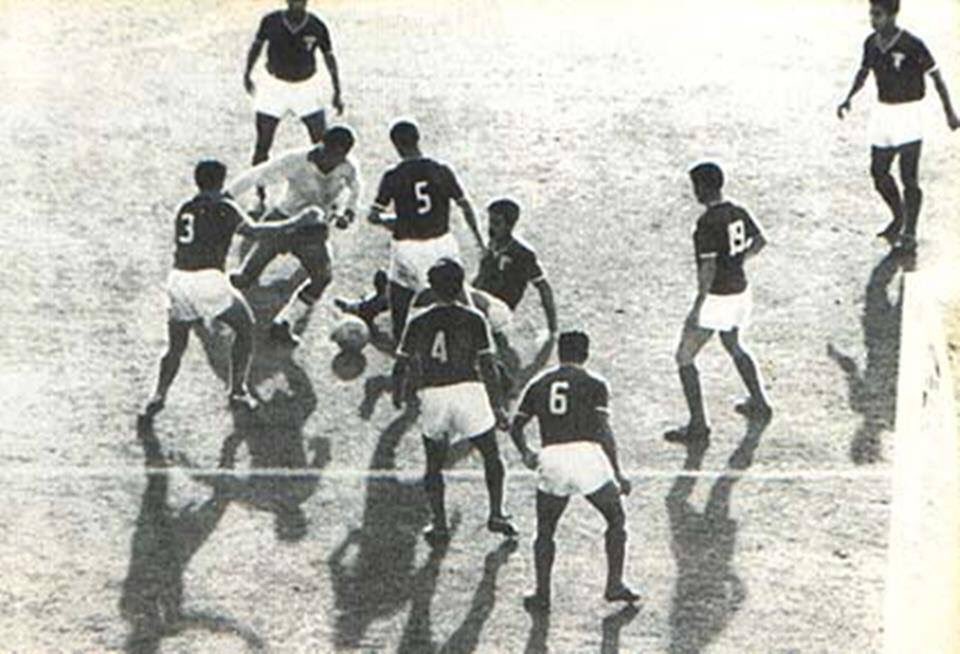
Moreover, Djalma Santos, his Brazil teammate, famously stated, “He had a childish spirit. Garrincha was football’s answer to Charlie Chaplin.”
- Physicality: His unusual physical deformities, particularly the bend in his knee, made him agile and unpredictable. His style was more about weaving and twisting around defenders than using speed alone.
- Crossing and Passing: Garrincha’s creativity extended beyond dribbling. He was also an excellent crosser of the ball, often creating dangerous chances for his teammates.
Particularly, his connection with players like Vavá and Pelé helped create a fluid and dynamic attacking force.
Former Wales international left-back Mel Hopkins, who lined up directly against Garrincha at the 1958 World Cup quarter-final, described him thus:
“When he stood and faced you his legs went one way and his body the other, there’s no doubt about it, he could have been declared a cripple. But my God could he play,”
He attacked with such pace and I believe he was more of a danger than Pele at the time – he was a phenomenon, capable of sheer magic.
“It was difficult to know which way he was going to go because of his legs and because he was as comfortable on his left foot as his right, so he could cut inside or go down the line and he had a ferocious shot too.
“Garrincha would have been a real star today, no question about it – a superstar.”
Post-World Cup Career and Personal Struggles
After his triumphs in the 1958 and 1962 World Cups, Garrincha’s career took a downturn:
- Declining Form: By the mid-1960s, Garrincha began to suffer from injuries and personal problems, including struggles with alcoholism. These issues affected his performances and eventually led to his premature decline as a player.
Furthermore, he drank heavily throughout his adult life and was involved in several serious road accidents, notably a crash into a lorry in April 1969 which killed his mother-in-law.
His battles with alcoholism impacted his career and life after football.
- Personal Life: Garrincha’s personal life was troubled. He had two failed marriages and several affairs that were often turbulent.
End of Career
Garrincha continued to play professionally until 1972, but by then, his best years were behind him. He briefly played for clubs like Flamengo and Olaria but was never able to recapture his earlier form.
Death and Legacy
Garrincha tragically passed away on January 20, 1983, at the age of 49, due to cirrhosis of the liver, a result of his struggles with alcohol. His death marked the end of a bright and bittersweet story.
- Cultural Icon: Garrincha is remembered not just for his incredible footballing talent but also for the joy and beauty he brought to the game.
His dribbling and playmaking were unmatched, and he remains an icon in Brazil, often mentioned alongside Pelé as one of the two greatest footballers in the country’s history.
Amazingly, Brazil never lost a match while fielding both Garrincha and Pelé. They both formed one of the greatest attacking partnerships in football history.
Also, Brazil lost just once in Garrincha’s 60 appearances for them — a 3-1 defeat by Hungary in his last game for the Selecao.
Furthermore, he is credited for inspiring the first bullfighting chants of olé to be used at football grounds.
- Tributes: Despite his troubled later years, Garrincha’s legacy is honored throughout the world.
Notably, his funeral procession, from the Maracanã to Pau Grande, drew millions of fans, friends and former players to pay their respects.
His epitaph reads “Here rests in peace the one who was the Joy of the People – Mané Garrincha.”
Additionally, people painted on the wall the words: Obrigado, Garrincha, por você ter vivido (Thank you, Garrincha, for having lived).
Equally, a multi-use stadium in Brasília, the Estádio Nacional Mané Garrincha, is named after him.
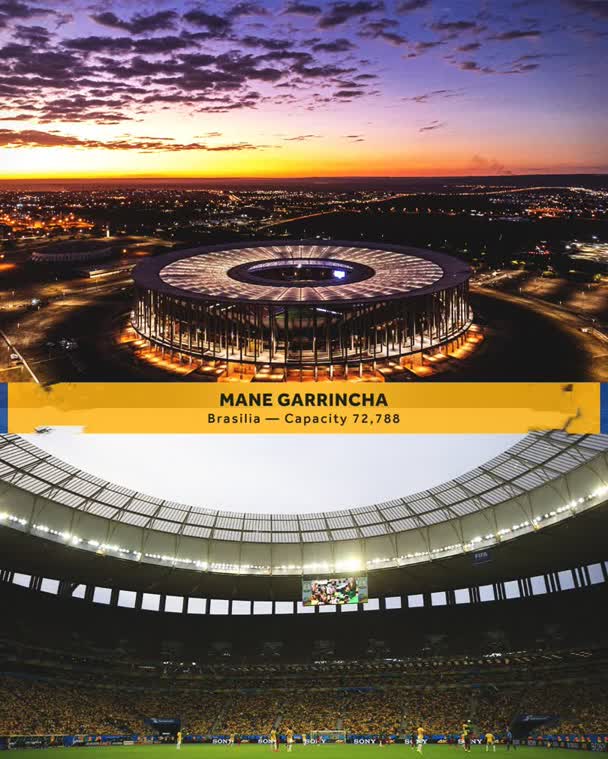
In Brazil, his name is synonymous with joy, skill, and the “beautiful game.” Numerous statues, documentaries, and songs have been dedicated to his memory, and he is fondly remembered by fans and former teammates.
Due to his immense popularity in Brazil, he was also called Alegria do Povo (People’s Joy) and Anjo de Pernas Tortas (Bent-Legged Angel).
In 1994, he was named in the FIFA World Cup All-Time Team.
In 1999, he came seventh in the FIFA Player of the Century grand jury vote. He is a member of the World Team of the 20th Century, and was inducted into the Brazilian Football Hall of Fame.
Garrincha: Key Achievements
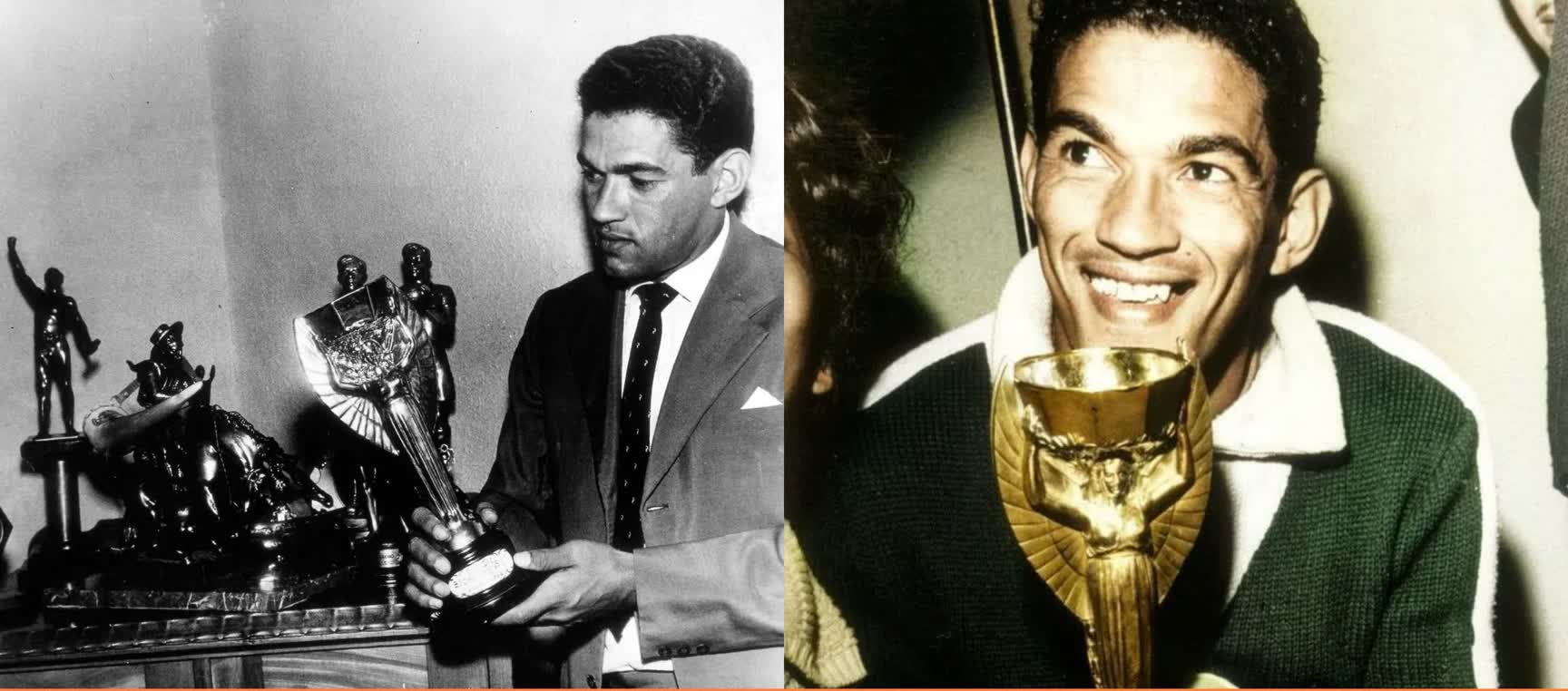
- 2× FIFA World Cup Champion (1958, 1962)
- Brazilian Football Hall of Fame
- World Champion Clubs (Paris Intercontinental Championship): 1963
- Campeonato Carioca: 1957, 1961, 1962
- Brazilian Championship Best Player: 1962
- World Soccer World XI: 1962
- FIFA World Cup Golden Ball: 1962
- FIFA World Cup Golden Boot: 1962
- FIFA World Cup All-Star Team: 1958, 1962
- Brazilian Championship Best Player: 1962
- Rio-São Paulo Tournament Best Player: 1962
- Interstate Club Champions Cup Best Player: 1962
- Carioca Championship Best Player: 1957, 1961, 1962
- World Soccer World XI: 1962
- World Team of the 20th Century
- FIFA World Cup All-Time Team inductee
- World Soccer’s Greatest Players of the 20th century (1999): #20
- L’Équipe’s top 50 South-American footballers in history: #4
- IFFHS Brazilian Player of the 20th Century (2nd place)
- IFFHS South American Player of the 20th Century (4th place)
- IFFHS World Player of the 20th Century (8th place)
- The Best of The Best – Player of the Century: Top 50
- Ballon d’Or: 1962 – Le nouveau palmarès (the new winners)
- IFFHS Legends
- Ballon d’Or Dream Team (Silver): 2020.
Conclusion
Garrincha’s dribbling and flair on the pitch made him a footballing genius, and his two World Cup victories solidified his status as a football legend.
His unique style, creativity, and influence on the game continue to inspire players today. His life — marked by both brilliance and struggle — captures the complexities of a sporting genius, but ultimately, his place in football history remains unshakable.

